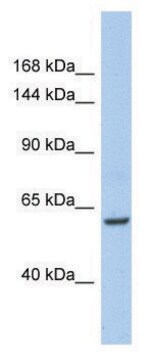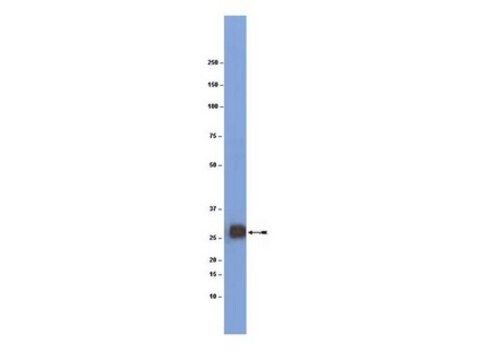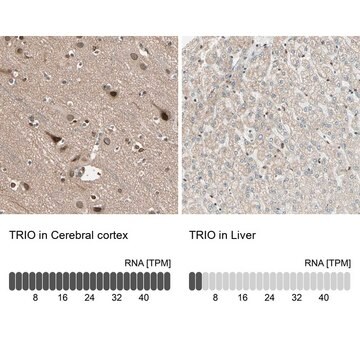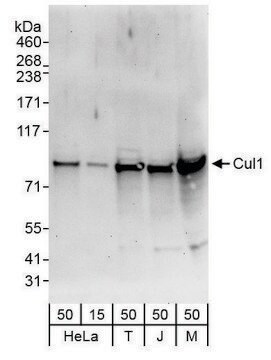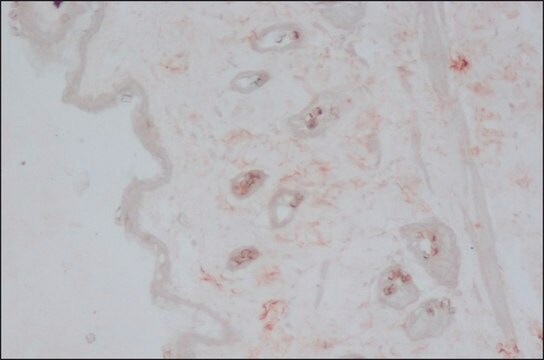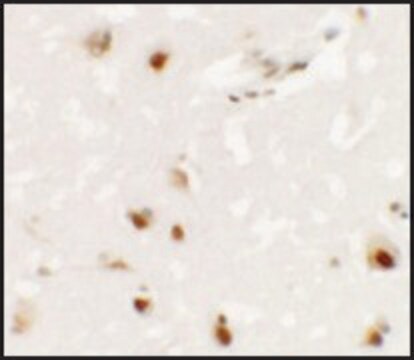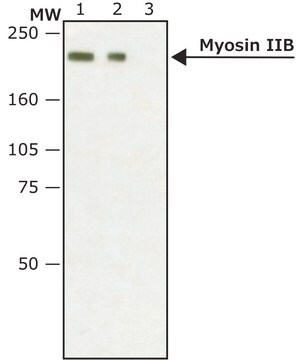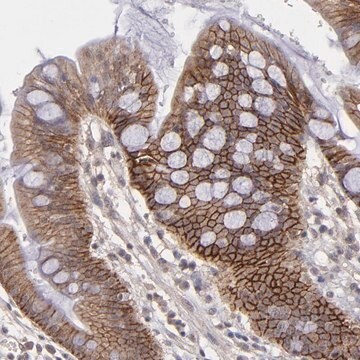ABN1452
Anti-TRIO
from rabbit, purified by affinity chromatography
Sinónimos:
Triple functional domain protein, EC: 2.7.11.1.
About This Item
Productos recomendados
origen biológico
rabbit
Nivel de calidad
forma del anticuerpo
affinity isolated antibody
tipo de anticuerpo
primary antibodies
clon
polyclonal
purificado por
affinity chromatography
reactividad de especies
human
envase
antibody small pack of 25 μg
técnicas
immunohistochemistry: suitable (paraffin)
western blot: suitable
isotipo
IgG
Nº de acceso NCBI
Nº de acceso UniProt
Condiciones de envío
ambient
modificación del objetivo postraduccional
unmodified
Información sobre el gen
human ... TRIO(7204)
Descripción general
Especificidad
Inmunógeno
Aplicación
Calidad
Western Blotting Analysis: 0.5 µg/mL of this antibody detected TRIO in 10 µg of HEK293 cell lysate.
Descripción de destino
Otras notas
¿No encuentra el producto adecuado?
Pruebe nuestro Herramienta de selección de productos.
Código de clase de almacenamiento
12 - Non Combustible Liquids
Clase de riesgo para el agua (WGK)
WGK 1
Punto de inflamabilidad (°F)
does not flash
Punto de inflamabilidad (°C)
does not flash
Certificados de análisis (COA)
Busque Certificados de análisis (COA) introduciendo el número de lote del producto. Los números de lote se encuentran en la etiqueta del producto después de las palabras «Lot» o «Batch»
¿Ya tiene este producto?
Encuentre la documentación para los productos que ha comprado recientemente en la Biblioteca de documentos.
Nuestro equipo de científicos tiene experiencia en todas las áreas de investigación: Ciencias de la vida, Ciencia de los materiales, Síntesis química, Cromatografía, Analítica y muchas otras.
Póngase en contacto con el Servicio técnico